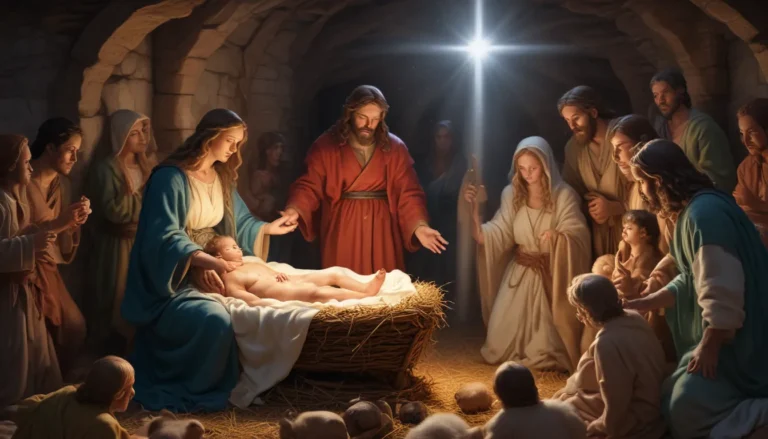The images in our articles may not match the content exactly. They are used to grab your attention, not to show the exact details in the text. The images complement the text but do not replace it.
Welcome to the enchanting world of Demeter, the revered ancient Greek goddess of agriculture, fertility, and the harvest. Delve into the rich mythology and enduring legacy of this divine figure as we uncover 15 intriguing facts shedding light on her symbolism, influence, and impact on religious practices. From her pivotal role in the Eleusinian Mysteries to her representation in art and literature, Demeter’s story is a tapestry of symbolism and meaning that continues to resonate with us today. Join us on a journey through the captivating world of Demeter, where myth and reality intertwine to reveal timeless truths about the human experience.
Key Takeaways:
- Demeter, the Greek goddess of agriculture, is known for her connection to the earth’s fertility and the myth of her daughter Persephone’s abduction, which explains the changing seasons.
- The Eleusinian Mysteries, dedicated to Demeter and Persephone, were secret religious rites in ancient Greece, celebrating fertility, agriculture, and the cycle of life and death.
Demeter: The Goddess of Agriculture and Fertility
In Greek mythology, Demeter is revered as the goddess of agriculture, fertility, and the harvest. She is often portrayed as a mature woman holding sheaves of wheat and crowned with grain, symbolizing her close connection to the earth’s bounty.
The Abduction of Persephone: A Central Theme in Demeter’s Mythology
The abduction of Demeter’s daughter, Persephone, by Hades, the god of the underworld, is a central theme in her mythology. This tale explores the deep maternal bond between Demeter and her daughter and the profound impact of Persephone’s absence on the earth’s fertility.
The Eleusinian Mysteries: Secret Religious Rites Dedicated to Demeter and Persephone
The Eleusinian Mysteries were secret religious rites and rituals in ancient Greece dedicated to Demeter and Persephone. These ceremonies celebrated fertility, agriculture, and the cycle of life and death, shrouded in secrecy and held in high regard by the ancient Greeks.
Demeter: The Maternal Figure Linked to Earth’s Fertility
As a maternal figure closely tied to the earth’s fertility, Demeter embodies the nurturing and protective aspects of motherhood. Her influence extends beyond agricultural abundance to encompass the well-being and sustenance of all living beings.
The Myth of Demeter and Persephone: Reflecting Life’s Cyclical Nature
The myth of Demeter and Persephone serves as a poignant allegory for the cyclical rhythms of life, death, and rebirth. Through Persephone’s descent into the underworld and subsequent return, the myth encapsulates the eternal patterns of existence.
Demeter in Art and Literature: A Timeless Inspiration
Demeter’s enduring legacy has been preserved in diverse cultural representations and artistic interpretations. From ancient sculptures and pottery to modern literature and visual arts, her mythological presence continues to inspire creativity and contemplation.
Demeter’s Significance in Ancient Greek Culture
Demeter’s influence over the growth and harvest of crops underscores her significance in ancient Greek society, where agriculture was vital to sustenance and livelihood. The city of Eleusis, a major center of worship for Demeter, attracted pilgrims and participants from across the Greek world.
Demeter and Ceres: Equated Deities in Roman mythology
In Roman mythology, Demeter is equated with Ceres, the goddess of agriculture, grain, and motherly relationships. The similarities between the two deities reflect the cultural exchange and assimilation of Greek and Roman religious traditions.
The Festival of Thesmophoria: Honoring Demeter as a Fertility Goddess
The Thesmophoria, an ancient Greek festival celebrating women, paid homage to Demeter as a fertility goddess. The rituals and observances during this festival were dedicated to promoting fertility, ensuring bountiful harvests, and honoring the divine feminine.
Demeter’s Role in Today’s World: Lessons for Sustainability
Demeter’s story continues to resonate in modern times, symbolizing the interconnectedness between humanity and the natural world. Her themes of nurturing, growth, and the changing seasons offer timeless lessons about the importance of sustainability and environmental stewardship.
Conclusion
In conclusion, Demeter, the Greek goddess of agriculture, is a captivating and influential figure in ancient mythology. Her enduring legacy as a nurturing and protective deity resonates across the ages, enriching our understanding of the divine and the natural world.
FAQs
What is the significance of Demeter in Greek mythology?
Demeter is a central figure in Greek mythology, revered as the goddess of agriculture, fertility, and the harvest. Her influence extends beyond the realm of mythology, as she represents the cycle of life, growth, and abundance.
How is Demeter’s story relevant today?
Demeter’s story continues to resonate in modern times, symbolizing the interconnectedness between humanity and the natural world. Her themes of nurturing, growth, and the changing seasons remain relevant, offering timeless lessons about the importance of sustainability and environmental stewardship.
As you explore the captivating world of Demeter, allow her mythological presence to inspire and enlighten you. Embrace the timeless truths and enduring legacy of this revered goddess, exploring the interconnectedness between humanity and the natural world. May the enchanting tale of Demeter resonate with you, offering insights into the cyclical rhythms of life, death, and rebirth.






